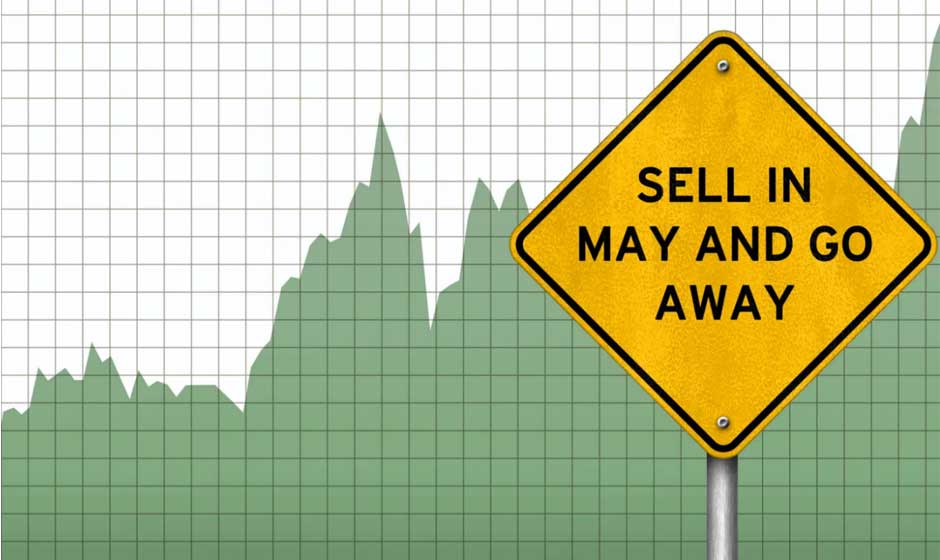Should You “Sell in May and Go Away”? Here’s What the Data Really Says

Have you ever heard the phrase “Sell in May and go away” and wondered if it’s actually good advice? Maybe you’ve thought about moving your money out of stocks before the summer slump just in case.
The idea behind this popular saying is simple: stocks tend to perform worse between May and October, so some investors believe it’s smarter to sell in spring and come back in the fall. But does the data really support that? And more importantly, should you follow this seasonal investing strategy?
To make an informed decision, it helps to learn how to invest based on long-term trends, risk management, and your personal financial goals, not just catchy market sayings.
Where Did “Sell in May and Go Away” Come From?
The phrase became popular thanks to The Stock Trader’s Almanac, which showed that from 1950 onward, investing in stocks from November to April (the “winter months”) often gave better returns than holding stocks during the May to October “summer period.”
So, the advice was: stay invested in winter, then shift to bonds or cash in the summer to avoid weaker performance. But here’s a question: does that still hold true today?
What Does the S&P 500 Say?
Interestingly, when analysts looked at the S&P 500, a broader and more modern market index than the Dow, they found something different. In the 1930s and 1940s, summer returns were higher than winter returns.
Specifically:
- In the 1930s, summer returns were 11.23% higher than winter.
- In the 1940s, they were 4.51% higher.
So already, we see that this rule doesn’t always work.
Still, when looking at the more recent period between 1990 and 2023, the S&P 500 averaged:
- 3%returns from May to October
- 3%returns from November to April
That’s a noticeable difference but is it enough to justify changing your entire investment approach?
Is Seasonality Real and Should You Act on It?
Let’s ask a few key questions:
- Are summer returns really that bad?
- Is it worth exiting the stock market and switching to bonds every year?
- Could you miss out on gains if you leave?
The truth is, while average returns are slightly lower in summer, the difference isn’t huge. And in some years, the summer months outperform the winter by a wide margin.
For example:
- In 2020, summer returns were +24%, while winter returns were negativeat -7.7%.
- In 2009, summer brought +21.9%, while winter saw -9.4%.
Would you have wanted to sit those out?
What Explains These Patterns?
Seasonal investing ideas are based on market behaviors that may repeat but they’re not guaranteed.
Some possible reasons for weaker summer performance include:
- Lower trading volume: Many investors and institutions take vacations.
- Portfolio rebalancing: Fund managers may sell off stocks ahead of fiscal year-end.
- Investor psychology: People feel more optimistic in winter or after the New Year.
But here’s the key: none of these are consistent enough to use as a reliable strategy.
And as more investors learn about these patterns, they often try to act before the expected timing which reduces the effectiveness of the pattern in the first place.
The Real Problem With Market Timing
Can you consistently know the best time to buy or sell?
Even professional traders struggle with timing. For most of us, trying to move in and out of the market based on calendar rules introduces:
- Higher transaction fees
- Tax impacts
- Emotional decision-making
Plus, you miss out on some of the best single days in the market which often make up a big portion of annual returns.
Time in the Market Beats Timing the Market
Still not convinced?
Recent study analyzed what would happen if five different investors put $2,000 per year into the market over 20 years:
- Perfect timer(bought at the low each year): $138,044
- Invested immediatelyeach year: $127,506
- Used dollar-cost averaging: $124,248
- Bought at the higheach year: $112,292
- Stayed in cash: $43,948
So even the “worst” stock market investor beat the one who stayed out of the market completely.
So… Should You Sell in May?
You might be tempted by the logic. After all, it’s based on real data. But before you follow the crowd and pull your money out, ask yourself:
- Can I really time the market that well?
- What will I lose by being out for six months?
“Sell in May and go away” might sound catchy, but the best strategy is often simpler: stay invested, focus on your goals, and let time not timing grow your wealth.


